APA welcomes the Saline River Chronicle as a Media Member
4 Guest Column:
By Steven Waldman and Julie Sandorf
Citizen Argus: Brinkley newspaper woman Glenda Arnett recognized for her community service and charitable work
By Wesley Brown
For more than 50 years, Glenda Arnett of the Brinkley Argus has taken the front-page photo for every winner of the community’s “Citizen of the Year” award from the Brinkley Chamber of Commerce
The office manager/award-winning photographer/writer/ad salesperson for the Monroe County weekly started work at the local newspaper in May 1967 and has worked for every publisher since for more than five decades.
One of the joys for this do-everything newspaperwoman has been the yearly honor and task of taking the photo of every recipient of the Citizen of the Year since 1971. Arnett was set up to take her prized photo during this year’s fete when the winner was announced. That moment, memorialized on the front page of the March 1 edition of the Argus, caught Arnett completely off guard and rendered her nearly speechless.
“They began reading about the person, and I couldn’t really hear what they were saying when they announced the winner,” said Arnett. “I asked my sister, ‘Whose name did they call?’ and she said, ‘It’s
you.’”
“I was shocked,” continued Arnett, noting that everyone in town except her was in on the surprise. “After they announced it, all my kids and family members started coming in and congratulating me. They did a great job of hiding this from me.”
The life-long Brinkley resident is a 56year veteran of the local newspaper business. In 2019, she received the Arkansas Press Association Golden 50 Service Award for more than 50 years of service in the newspaper industry.
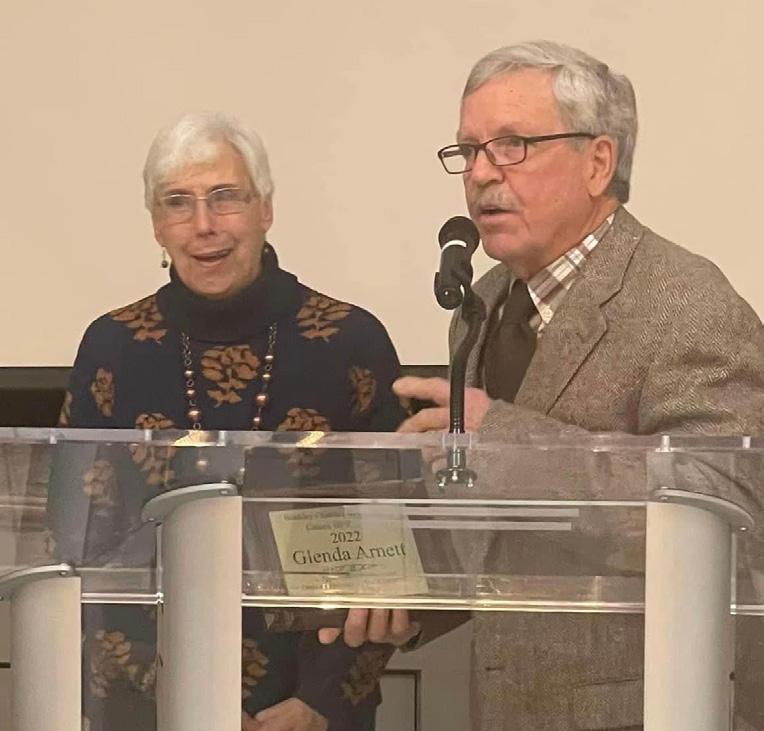
According to the Brinkley Chamber of Commerce, numerous nominations of Arnett were submitted for the 2022 top citizen award. One said of Arnett, “Glenda is the epitome of everything that is great about Brinkley. She is dedicated to the town and volunteers for innumerable charitable activities through civil and religious organizations...There are few lives in Brinkley that she hasn’t touched.”
Arnett said that she was surprised by the honor, although her role at the newspaper has allowed her the opportunity to get out into the community and meet people
every day.
Founded in 1883 by J. C. McKetham and the brothers B. F. Kelley and Robert J. Kelley, the original Brinkley Argus was a four-to-eight-page weekly which advertised itself as having the largest circulation of any paper in Monroe County in the 1890s.
Arnett’s first publisher and editor, Mason
Registration now open for APA Advertising Conference
Registration is now open for the 2023 APA Advertising Conference on Friday, April 28.
Attendees can purchase tickets online at arkansaspress.org/advertisingconference
The conference will be held at Red &
Blue Events Venue, near the Arkansas State Capitol in Little Rock. Marianne Grogan, president of Coda Ventures in Nashville, Tenn., will be the keynote presenter, and will demonstrate how data can be used by newspapers for successful sales conversations.
The day will also include a panel
discussion, a luncheon and the APA Better Newspaper Advertising Contest awards ceremony, which will be emceed by Roby Brock of Talk Business & Politics
Tickets for the day are $50 and include all events. If you have any questions, email info@arkansaspress.org
Arkansas Press Association Publisher Weekly Vol.18 | No. 12 | Thursday, March 23, 2023 | Serving Press and State Since 1873 Continued on Page 2
6
Some local newspapers are on life support; banks could provide the cure they need
Arnett with master of ceremonies Steve Henry at the Citizen of the Year awards presentation at the Chamber of Commerce Banquet on February 23, 2023
Citizen Argus: Brinkley newspaper woman Glenda Arnett recognized for her community service and charitable work
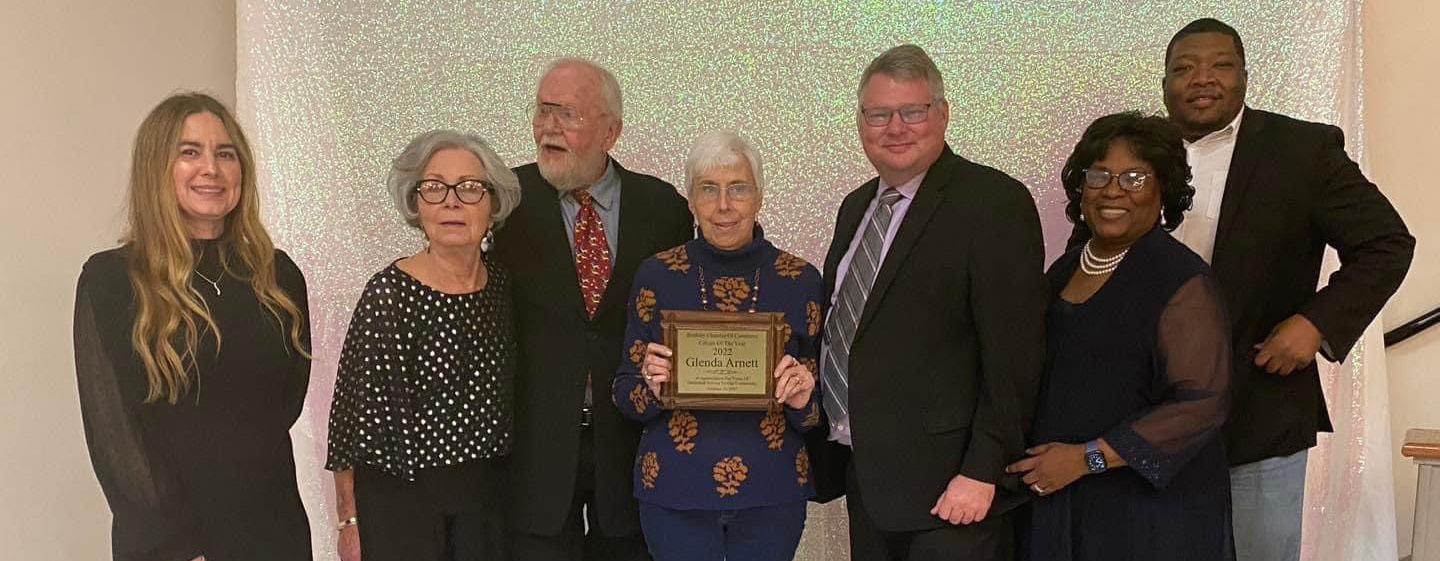
Continued from Page 1
William Clifton, took charge of the Brinkley newspaper in 1948 and ran it for more than 40 years with his daughter, Flora Jean Clifton Elledge, and her husband, Franklin Hoover Elledge. Clifton and his family also published the Monroe County Sun out of Clarendon. Clifton died in 1988, and his headstone is inscribed with the quotation: “He was a good newspaper man.”
After Clifton’s death, Flora Jean and Franklin Elledge ran the Argus for a few more years before retiring. In 1995, Katie Jacques and Thomas Jacques purchased the Brinkley Argus and the Monroe County Sun from the Elledges. Katie Jacques worked as the editor for the Argus, which was printed at the office of the Stuttgart Daily Leader
In 2007, the Jacqueses merged the Argus with the Monroe County Sun into the Central Delta Argus-Sun, which continued to cover major news but also focused on community news and memorable articles. The last edition of the Central Delta ArgusSun under that name was printed a day late in December 2016 due to a fire.
In 2017, the Jacqueses sold the Central Delta Argus-Sun to Hayden Taylor. Taylor was nineteen at the time he took charge of the newspper, making him one of the youngest newspaper owners in Arkansas and the United States at the time. Taylor renamed the paper the Monroe County Herald.
In late August 2022, Helena World owners Andrew Bagley and Chuck Davis purchased the Herald and rebranded the newspaper as the Monroe County Argus. Bagley said he is honored to work with Arnett, saying she has universal respect in the community and was deserving of being selected as Brinkley’s leading citizen.
“Glenda is an invaluable member of our team and definitely is an asset to the city of Brinkley. Words don’t adequately describe her impeccable character, work ethic and pure heart,” said Bagley. “I am fortunate to know her, and the Argus would not be
where it is today without her efforts for the past 56 years.” Despite the recognition, Arnett joked now she didn’t have the honor of taking the photo of the Citizen of the Year award winner for 52 years straight. “I am used to being behind the camera and not in front of it,” she said.
Recognized numerous times by APA for her award-winning photography, Arnett said it has been difficult since her husband died in 2021 and dealing with isolation during the pandemic. However, one of her greatest joys is simply getting a call and people asking her to come to her event to take a photo and write a story.
“It has been a challenge for me to stay home. I love that people can call me and ask me to come out to their event and take pictures,” she said. “It is great meeting the public and visiting with them and going out and taking pictures and selling ads. I know it makes their day when they see their event in the newspaper.”
And from someone who began in the business most of her life, Arnett said she has seen many changes in the industry since she started work at the Argus right out of high school. The biggest impact on the industry, she said, has been the internet and digital technology.
“We used to have to go to press with everything printed using metal type set by the linotype. Then we changed over the computer and email and internet. It has changed a lot since I first started,” said Arnett.
But, Arnett has adapted to those changes and continues learning new things daily, she said. When asked about her future, the mother of three and grandmother and aunt of many said she has no plans to retire anytime soon.
“Once the ink gets in your blood, it is hard to get out,” she said.
Arkansas Publisher Weekly 2 March 23, 2023
Monroe County Argus staff from left: Terri Hall, freelance writer; Cindy Davis, food columnist; Chuck Davis, co-owner; Glenda Arnett; Andrew Bagley, co-owner and Publisher; Sandra Bagley, religion columnist; Cameron McMath, freelance photographer.
PRESS PASS

What is Earn Your Press Pass?
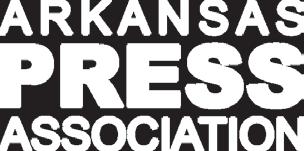
Earn Your Press Pass is a simple course, covering the basics of community journalism. It is designed to train those with limited or no news experience to work for their local newspaper,helping to create valuable coverage. It is taught by Lindsey Young, a community journalist and publisher with 10 years of high school teaching experience.
What does the course include?
A. Writing on deadline
B. Fun with leads
A. Taking good photos
B. Editing photos
A. Parts of a newspaper


B. Other terms to know
A. Who should I interview?
B. Preparing for an interview
C. Conducting an interview
D. Interview follow-up
E. Source problems and issues
F. Let’s practice.
A. Newsworthiness
B. News-writing basics
C. Breaking and hard news stories
D. Covering a meeting
E. Working a press release
F. Writing a feature story
G. Covering sports
H. Opinion writing
C. Using quotes
D. Headline writing
E. Cutline writing
F. Thinking outside the pyramid
C. Dealing with submitted photos
X.
A. Tips for effective editing
B. Revising and rewriting
C. Let’s practice.
•
A. Keeping yourself organized
B. Preparing files for layout
C. I have nothing to write about. Help!
Sections are feature videos and printable cheat sheets
• Lessons will continue to be added/updated.
A. Your right to know
B. Avoiding libel
C. Journalism ethics
D. Contradictions of community journalism
“I was extremely impressed. Lindsey even taught this old dog some new tricks. The content is solid, it’s easy to use, and you can sign into and out of the program as your time allows. Lindsey’s engaging nature makes the lessons enjoyable, which makes you look forward to the next segment.”
BAGGETT, TEXAS PRESS ASSOCIATION Executive vice president and a 50-year veteran of small and large Texas newsrooms
For more information, contact Ashley Kemp Wimberley at ashley@arkansaspress.org
EARN YOUR
ARKANSASPRESS.ORG
II. III.
Types of
Introduction
IV. I.
Interviewing
Stories
Newspaper Jargon V. VI. VII. VIII. Journalist Rights and Ethics
Writing Techniques Associated Press Style Editing
IX. Photography Final Bits of Advice
DONNIS
Nominations open for
E&P’s “Editors Extraordinaire” Class of 2023
Editor & Publisher magazine is seeking to recognize outstanding editors for its upcoming “Editors Extraordinaire” feature.
“It’s easy to recognize those who run the news media company or write awardwinning articles, but there are those behind the scenes whose contributions are immeasurable,” said E&P in an article about the feature.
“In newsrooms across the country, editors bear heavy responsibilities — leading the newsroom, determining what stories should be told and who is best positioned to tell them, challenging assertions, developing talent, elevating journalism — all while maintaining an unwavering commitment to the public’s interest. Their names may not always be as familiar as bylined reporters or celebrated columnists, but their insight, experience and leadership are indispensable.”
To put forth a nomination, visit editorandpublisher.com/stories/2022ep-editors-extraordinaire,227442. The nomination deadline is Friday, March 31.

APA welcomes the Saline River Chronicle as
a Media Member
APA is pleased to announce the membership of the Saline River Chronicle as a Media Member.
Founded in 2010 by Rob Reep, the Saline River Chronicle provides free daily news to readers in Bradley County, western Drew County and southern Cleveland County. Tim Kessler, retired editor of The Eagle-Democrat in Warren, serves as reporter.
The online news site covers all news topics, including local government, community news and obituaries, as well as Warren High School athletics year-round. The site also pioneered live streaming of high school sporting events in South Arkansas. With more than 2.25 million pageviews in 2022, the Saline River Chronicle can be found at salineriverchronicle.com We welcome them to the association.

Lyles joins Franklin News Foundation as Vice President of Syndication & Distribution

Industry leader Jerry Lyles has joined the Franklin News Foundation as organization’s first Vice President of Distribution & Syndication. Lyles, former general manager of the Benton Tribune Courier in Benton, Kentucky and 1993 Kentucky Press Association President, assumes responsibility for the further expansion of Franklin’s partnerships with media partners.
“I have admired the serviceoriented approach that Jerry took when we worked together in the newspaper industry,” Franklin News Foundation President Chris Krug said. “Franklin has experienced significant growth over the past three years as The Center Square has blossomed into one of America’s most-trusted newswire services. Our expansion of America’s Talking Network podcasts to terrestrial radio has also occurred ahead of schedule. Our team has built dozens of relationships across
all platforms, and we are certain that having Jerry in this role will ensure we are able to deliver the highest level of service to our existing and new partners.” Over his career Lyles has worked in positions ranging from local newspaper group publisher to senior vice president of sales/marketing, chief revenue officer and vice president of syndicated content for various media outlets including Publishing Group of America, Athlon Sports, Parade Magazine, Dobie Media, TownNews (now Blox Media), AHM Publishing and The Daily Wire.
Franklin News Foundation is an innovation 501(c)(3) nonprofit media company built to address the many challenges of sustainable public journalism. It was constituted in 2019 and constructed to provide value to news consumers who access their news and information across an ever-changing mosaic of content streams.
Arkansas Publisher Weekly 4 March 23, 2023
We want to know about your new hires, retiresand promotions! Send your staffing changes to info@arkansaspress.org to be updated online and included in the Arkansas Publisher Weekly.
LET US KNOW
Survey indicates readers want more "service journalism"



A survey of newspaper readers in three New Jersey cities found a desire for more service journalism in the form of information about municipal government meetings or contact information for local leaders, according to a recent article by Laura
 Hazard Owen of Neiman Lab.
Hazard Owen of Neiman Lab.
Sarah Stonbely, the research director of the Center for Cooperative Media at Montclair State University, surveyed residents of Blairstown, Paterson and Trenton, New Jersey, about what they need from their local news outlets.
While the demographics of each city vary widely – Paterson, one of New Jersey’s largest cities, is majority-Hispanic and also has a sizable proportion of Arab residents; Trenton, another large city and the New Jersey state capital, is roughly half Black; and Blairstown is a small, rural town that is more than 90% white – Stonbely found that readers desired a calendar or list of local meetings they could attend, and, lacking up-to-date information from newspapers, often turned to Facebook groups to fill the gap.
“I got the impression that people used [Facebook for local news] pretty grudgingly,” said Stonbely to Owen in the article. “They felt like it was kind of their best worst option, because of the drain of local news, plus people are
March 23, 2023
Dave Storey • Dave@CodaVentures.com • 319.360.4480 • www.CodaVentures.com coda And
At
Let’s talk... Your call. It’s Your Call.
it’s a big one. That’s why
you
need relevant data, persuasively presented, to capture that advertiser’s attention.
Coda, we not only create research solutions
tailored
to your unique needs, we package the results for you into a variety of compelling and turn-key sales tools.
Community news organizations are often integral to the vitality of a community. Studies, and common sense, have indicated that communities that lack good local news have less civic involvement, more corruption, higher taxes and lower voter turnout.
So, isn’t it about time for the government to encourage banks to treat local news as an essential community service?
As readers of this publication know, federal banking regulators are right now considering changes to the implementing regulations for the Community Reinvestment Act. CRA was enacted in 1977 to remedy the discriminatory effects of disinvestment in low- and moderateincome communities, and affirmed that a bank has an obligation to “meet the credit needs of its entire community, including low- and moderate-income neighborhoods, consistent with safe and sound operation of such institution.” In 1995, new rules required that CRA performance reviews take into account banks’ responsiveness to community investment needs and the provision of community development services. The law has, to some extent, worked. CRA incentivized banks to join forces with the public sector and philanthropy to create new credit and investment products that have, in turn, leveraged tens of billions for such essential community infrastructure as affordable housing, small business development, primary health and day care centers and food markets. It has spurred the establishment of “mission driven” lenders, such as Community Development Financial Institutions (CDFIs), which specialize in financing investment in the unique needs of underinvested communities and businesses.
But these investments become far riskier when there are not good, reliable sources of information for residents and civic leaders — and reporting that holds politicians and institutions accountable.
Some local newspapers are on life support; banks could provide the cure they need
By Steven Waldman and Julie Sandorf Originally published in American Banker, March 10, 2023.
Banks might get CRA points for lending to a low-income housing project. But if the housing project becomes inefficient or corrupt because no one is watching it carefully, what has been gained? Banks might lend to small businesses, but if those businesses have few ways to reach customers, they may struggle.
Yet right now, many of the small media businesses that serve low and moderate income communities are struggling mightily — and getting little help from local banks.
That’s why a broad coalition of local news organizations made a proposal to the Federal Reserve, the Comptroller of the Currency and the Federal Deposit Insurance Corp. to urge some relatively minor changes that could have a major impact on the health of community news. First, it’s important to understand the crisis in local news. From 2000 to 2020, newspapers lost some 81% of their advertising revenue. As a result, there has been a 59% drop in the number of newspaper newsroom staff.
Some 2,000 counties, many of which at one point had a local paper, now have no local news source. Thousands more have “ghost newspapers,” that provide little local news. More than a fifth of Americans live in news deserts or in communities at risk of becoming news deserts.
The lack of local news undermines the civic health of communities at every level. One study showed that municipal bond ratings went down, and financing costs went up when there was less local news. Other studies have shown that residents are less involved in civic organizations, vote less often and know less about local issues. There’s voluminous evidence that when there are fewer watchdogs, corruption rises. And we saw during the COVID-19 pandemic, the collapse of local news leaves information vacuums that get filled with misinformation.
The most vulnerable communities are
at greatest risk. The recent “State of Local News 2022” report by Prof. Penny Abernathy of Northwestern University found that newspapers are closing at an average of two per week — with impact being felt disproportionately in low- and moderate-income areas.
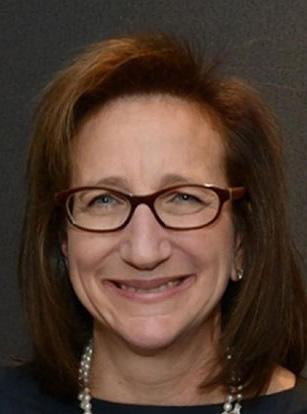
But many local newsrooms have trouble financing the changes they need to make. Big-time venture capitalists view local news as not “scalable.” Hedge funds buy newspapers but end up gutting them instead of investing in them.

Banks — especially those focused on serving low- and moderate-income communities — have been mostly on the sidelines. We desperately need them to step forward.
Many local newsrooms are so focused on keeping the lights on that they do not have the capital to invest in the revenueproducing steps that could help them survive or thrive. For instance, if they could get a loan to hire an advertising seller or a fundraiser, many would be able to take major leaps forward toward sustainability.
In a survey of local newsrooms, some 65% said they would use extra capital to hire an advertising sales or fundraising staff person — directly drawing in revenue and helping to make the businesses sustainable.
So, the coalition of news organizations made three recommendations to the banking regulators.
First, clarify that certain types of local news — provided by small businesses for low- and moderate-income communities — do count as “community supportive services.” That way, banks could earn CRA points for helping those organizations.
Indeed, CRA already gives thumbs up to “educational services.” Regulators should make it clear that educating residents on
Arkansas Publisher Weekly 6 March 23, 2023 Guest Column:
Continued on Page 7
Guest Column: Some local newspapers are on life support; banks could provide the cure they need

Continued from Page 6
civic matters through local news should count as educational services. This is not a novel approach: most local journalism entities that have been granted tax exempt status from the Internal Revenue Service have done so by proving that they are a type of educational institution. Finally, banks should advertise more in local news outlets. The law already requires that banks make their products and services known to residents of lowand moderate-income communities. Doing some of that marketing through local media will help them promote their services while simultaneously strengthening the local news that can, in turn, strengthen the community
We are not arguing that CRA eligibility alone will open the floodgates of bank and CDFI financing to meet the credit
and capital growth needs of local news outlets. But it could catalyze philanthropic funding and mission-driven financial institutions to develop innovative credit and investment products tailored to the unique opportunities and challenges of rebuilding a local news infrastructure.
When CRA was first established, philanthropic organization stepped up with the research and development funding to test new models and was a key ‘loss leader’ with new social investment products that unleashed exponentially larger pools of public and private investment targeted to community revitalization. It could do the same if CRA eligibility were extended to the revitalization of local news.
Since 1977, banks have made profitable investments and marketing decisions under the CRA firmament — creating a win-win for private sector investment
and the public good. Helping local media is one way to help that would have ripple effects — assisting not only these particular small businesses, but all the residents that are served by having accurate, trustworthy local information.
American Banker is the essential resource for senior executives in banking and financial services, keeping its users updated on vital developments and focusing sharply on their most important concerns — innovation, transformation, and disruption; technology, regulation, and reform. Steven Waldman is Chair of the Rebuild Local News Coalition and co-founder of Report for America. Julie Sandorf is President of the Charles H. Revson Foundation.
Arkansas Publisher Weekly 7 March 23, 2023
94th Arkansas General Assembly
Legislative Report
APA is monitoring the following filed bills of interest to our industry and the public:
Bill No. / Author Short Description
HB 1099
Rep. Collins
An act to expand the Arkansas FOIA - Expands the time a custodian, requester, or the subject of certain public records can seek an opinion from the Attorney General on whether the decision by a public-records custodian to release those records is consistent with FOIA.
https://bit.ly/3HcRslh
HB 1399
Rep. Cavanaugh
HB 1584 Rep. Watson
HB 1616
Rep. Cavenaugh
An act to amend the law regarding publication requirements for counties and municipalities; to amend the law concerning elections; and to amend the law concerning tax delinquency lists.
https://bit.ly/3xqOiEM
An act to amend the requirements for a tow business to give public notice in certain circumstances; and for other purposes.
http://bit.ly/3JqgtdS
To Amend The Law Concerning Publication Of Notice; To Allow The Publication Of Notice On A Website; To Amend The Law Concerning Counties And Municipalities And Publication; And To Amend The Law Concerning Elections. bit.ly/3n0hW1P
HB 1444
Rep. Ray
HB 1555
Rep. Meeks
SB 353
Sen. Dotson
SB 380 Sen. Clark
SB 381
Sen. Clark
To Amend The Law Concerning The Attorney General's Review Of Consent Decrees Entered Into By Covered Entities. bit.ly/3lqgTHN
To Regulate Meetings, Internal Policies And Guidelines, And Reports To Address A Cybersecurity Incident Involving, Or A Cyberattack On, A Public Entity. bit.ly/3ZSayUt
To Amend Arkansas Law Concerning Drafting Requests And Information Requests To Legislative Employees. bit.ly/3yL07GI
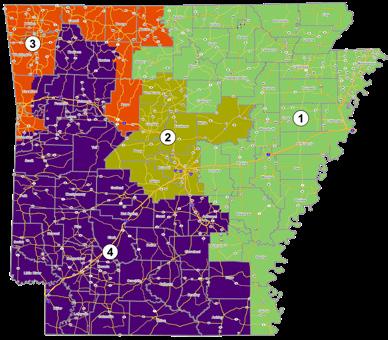
To Require Records Custodians To Respond In Writing In Certain Circumstances Under The Freedom Of Information Act Of 1967. bit.ly/3LvQOSy
To Amend The Freedom Of Information Act Of 1967; And To Require Certain Regular Training Of Public Governing Bodies.
bit.ly/3yJzZMb
Neutral Referred To Transportation, Technology & Legislative Affairs - Senate
Neutral Referred to the Committee on State Agencies & Governmental Affairs - House
Supports Failed in State Agencies & Governmental Affairs - Senate
Supports Failed on Senate Floor
SB 382
Sen. Clark To Define "Meeting" Under The Freedom Of Information Act Of 1967; And To Amend The Law Related To Public Meetings Under The Freedom Of Information Act Of 1967. bit.ly/40gPPK7
HB 1610
Rep. Bentley
To Amend The Law Relating To Public Meetings Under The Freedom Of Information Act Of 1967. bit.ly/3ZRwqj9
Supports Failed in State Agencies & Governmental Affairs - Senate
Opposes Failed in State Agencies & Governmental Affairs - House
Arkansas Publisher Weekly 8 March 23, 2023
APA Position Current Status
Supports Now Act 36
No Position Referred to the Committee On City, County & Local Affairs Committee - House
Opposes Referred to the Committee on Public Transportation - House
No Position Referred To the Committee on City, County & Local Affairs Committee - House
Neutral Amended in State Agencies & Governmental Affairs - House













 Hazard Owen of Neiman Lab.
Hazard Owen of Neiman Lab.









